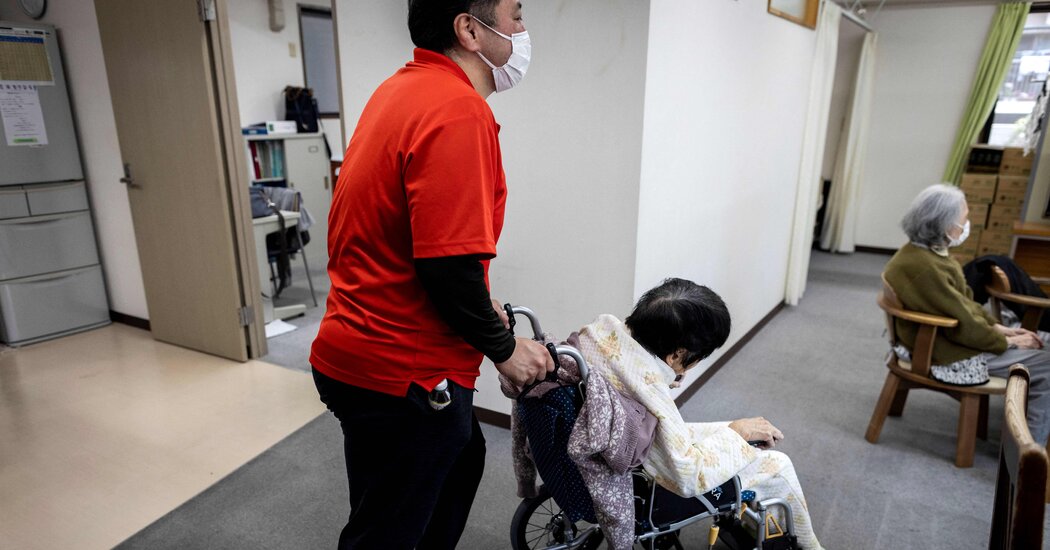

CANADA. Provinces and territories fund long-term care services through general tax revenue. Money budgeted is not always enough to cover all services, and some localities give priority to those with the greatest needs. The amount of subsidies people can receive, the costs they have to pay out of pocket and the availability of services vary by province and territory, as they do in the United States with state Medicaid programs. The mix of providers also varies regionally: For instance, nursing home care in Quebec is mostly run by a public system while homes in Ontario are mostly for-profit. Notably, Canada’s long-term care system is separate from its national health care system, which pays for hospitals and doctors with no out-of-pocket costs to patients. In 2021, Canada spent 1.8 percent of its G.D.P. on long-term care, 80 percent more than the United States spent.
BRITAIN. Local authorities pay for most long-term care through taxes and central government grants. Private providers usually supply services. Government contributions are based on financial need, with co-payments usually required. As in the United States, middle-class and wealthy people pay most or all of the costs themselves. Unlike in the United States, the government provides payments directly to lower-income people so they can hire workers to care for them in their homes. Britain has also taken steps to shield people from losing all of their wealth to pay for long-term care. It subsidizes care for people with savings and property of less than about $30,000, while in the United States most people don’t qualify for Medicaid until they have run through all but $2,000 to $3,000 of their assets. In 2022, the government proposed extending subsidies to people who have as much as $105,000 of wealth and property, with a lifetime cap of about $100,000 on how much anyone spends on long-term medical care, excluding room and board in a nursing home. But the plan has been postponed to 2025. In 2021, Britain spent 1.8 percent of its G.D.P. on long-term care, 80 percent more than the United States did.
SINGAPORE. Singapore recently instituted a system of mandatory long-term care insurance for those born in 1980 or later. Citizens and permanent residents are automatically enrolled in an insurance plan called CareShield Life starting at age 30. They must pay premiums until they retire or turn 67 (whichever comes later) or are approved to use services. The government subsidizes 20 to 30 percent of premiums for those who earn around $2,000 a month or less. Monthly payouts start at about $440. Government subsidies for nursing homes and other institutional care can range from 10 percent to 75 percent depending on ability to pay. Those who make more than $2,000 a month receive no subsidies. CareShield is optional for Singaporeans born in 1979 or earlier; they are covered under an older, voluntary plan. Singapore also provides a means-tested monthly cash grant — this year about $290 — to help with caregiving expenses.
Sources: The National Bureau of Economic Research project on international comparisons of long-term care; Kathleen McGarry, an economics professor at UCLA; The Commonwealth Fund; Organization for Economic Cooperation and Development; government websites.
Note: Spending comparisons with the United States are based on the most recent O.E.C.D. data and include spending from government and compulsory insurance programs as a percent of each country’s gross domestic product, which is the total monetary value of all the finished goods and services produced within a country’s borders. The comparisons cover people of all ages and exclude spending from voluntary insurance plans and out-of-pocket costs. All currency figures are in U.S. dollars.
24World Media does not take any responsibility of the information you see on this page. The content this page contains is from independent third-party content provider. If you have any concerns regarding the content, please free to write us here: contact@24worldmedia.com

Common Mistakes When Using Athletic Field Tarps

High-Performance Diesel Truck Upgrades You Should Consider

Warehouse Optimization Tips To Improve Performance

Fire Hazards in Daily Life: The Most Common Ignition Sources

Yellowstone’s Wolves: A Debate Over Their Role in the Park’s Ecosystem

Earth Day 2024: A Look at 3 Places Adapting Quickly to Fight Climate Change

Millions of Girls in Africa Will Miss HPV Shots After Merck Production Problem

This Lava Tube in Saudi Arabia Has Been a Human Refuge for 7,000 Years

Four Wild Ways to Save the Koala (That Just Might Work)

National Academy Asks Court to Strip Sackler Name From Endowment

Ways Industrial Copper Helps Energy Production

The Ins and Out of Industrial Conveyor Belts